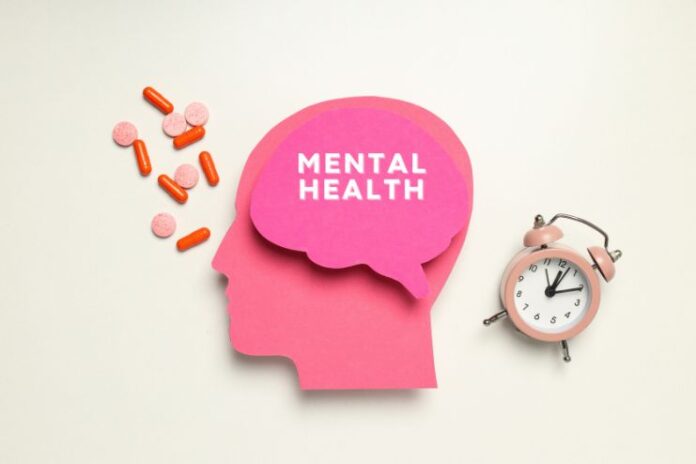Mental health problems impact millions of people of all ages, backgrounds, and areas of life, and they are more widespread than most people realize. The need to ensure we discuss mental health accurately and sympathetically is growing in tandem with increasing awareness of it.
Sadly, there are still a lot of myths about mental health and mental illness that spread, which feed stigma, fear, and false information. These misconceptions often deter people from seeking the support they need or lending a hand to those in need.
Dispelling these stereotypes is essential to raising awareness of mental health issues and creating a culture that is more knowledgeable and caring. To shed light on the truth behind these damaging ideas, we will debunk six of the most prevalent misconceptions about mental health in this article.
Read More: The Power of Third Places: How Spaces Beyond Home & Work Boost Mental Health
1. Myth: Mental Illness Isn’t Real; It’s All in Your Head

Mental disorders are genuine medical conditions with valid remedies. They are upsetting and don’t go away on their own. You may be confident that consequences will eventually appear, even if they don’t happen immediately. If someone had a broken leg, you wouldn’t encourage them to “just get over it” or criticize them for using a crutch or cast to help them deal. Mental disease is no exception.
There is a lot of research on mental illness, and it is real. An outside observer may not always be able to see the signs of specific mental health conditions. Nonetheless, there is proof that these “invisible” factors have observable consequences.
Minimizing mental health issues makes it more difficult for people to get care and only increases the stigma associated with mental illness. To acknowledge the struggle and support those affected, we must treat mental health concerns with the same seriousness and respect as any physical illness.
According to Jennifer Beckjord, PsyD, senior director of clinical services at UPMC Western Psychiatric Hospital, the public must be educated about what is and is not true. This raises awareness about mental health and related issues, which should result in earlier efforts at prevention, intervention, and recognition.
2. Myth: You Can Snap Out of It

The idea that you can “snap out of” a mental health issue is a misconception. Mental health issues are genuine medical disorders that call for assistance and competent care, not just willpower.
Willpower does not affect mental disease. Saying a person can “snap out of it” yet talking about mental illness is naive. They are frequently complicated and can incorporate various elements, such as social, psychological, and biological effects.
Willpower alone is frequently insufficient for effective mental health treatment. Professional assistance, such as counseling, medication, and lifestyle modifications, is often essential for managing symptoms and improving quality of life.
Finding evidence-based therapy options and learning healthy coping strategies can have a significant impact on mental wellness. To promote mental wellness, it is essential to be empathetic and kind, rather than judgmental.
Read More: Rewilding for Mental Health: Why Spending Time in Nature Heals the Mind
3. Myth: Only Weak People Suffer from Mental Illness

A mental illness has little to do with weakness. As a medical condition, mental illness requires clinical care. Several factors, including brain chemistry, illnesses or injuries, life experiences, and family history, influence the development of mental illness.
In actuality, dealing with a mental health issue is frequently an indication of having experienced extreme stress, trauma, or a physiological imbalance rather than a sign of personal weakness. No matter how resilient, accomplished, or robust a person is, mental diseases can still harm them.
No matter how strong or weak a person is, mental illness can still harm them. Admitting that you need mental health treatment requires courage and fortitude.
Realizing that mental illness is a medical condition rather than a personal failure is the first step in eradicating the stigma. Compassion and support genuinely foster strength and healing, not criticism.
4. Myth: Therapy is Only for Crazy People

Therapy is beneficial even if you don’t have a mental disease, and going to therapy does not imply that you have a mental condition. It’s also not an indication of weakness.
To put it simply, being mentally sick does not equate to being “crazy.” It indicates your vulnerability. It suggests that, like someone with diabetes, you have a disease with difficult symptoms.
You are not “crazy” just because you have a mental disease, even though it may cause you to think differently, have mood swings, or see the world differently. It indicates that, like everyone else, you are a human being and are prone to disease.
People seek psychotherapy to deal with a variety of problems, such as depression, anxiety, and life transitions, among others. A lot of people consider therapy to be a preventative measure. You can receive advice and recommendations on how to prevent the development of additional health problems during your annual checkups.
Read More: Beyond Weight Loss: The Role of Nutrition in Enhancing Mental Health
5. Myth: Children Don’t Experience Mental Health Issues

The claim that youngsters don’t have mental health problems is untrue. Mental health issues in children can indeed include disorders like ADHD, depression, and anxiety.
Warning indications of mental disease can appear in even young children. Three-fourths of mental health problems start before the age of 24, and half of all mental illnesses manifest before the age of 14.
One out of five teenagers has or will have a mental condition, according to research. Adolescents and adults who have experienced negative childhood experiences may have mental health problems.
The long-term emotional and psychological health of a child can be significantly impacted by identifying and resolving these issues early on through early intervention and support, such as counseling, therapy, or school-based programs. Treatment for mental health issues should begin early and be given the same priority as physical treatment.
6. Myth: Medication is the Only Solution for Mental Illness

Medication can help to manage the symptoms of mental illness, but it cannot eliminate or cure it. Results from medication take time to manifest.
Doctors may administer medication to some patients with mental illnesses as part of their treatment, but this isn’t always the case. Some people with mental diseases can control their symptoms without the use of drugs.
Remembering that no two people are alike is crucial. Regarding symptom management, medication can be quite beneficial at times. It is essential to recovery for some individuals. What is the most effective way to treat mental illness, then? There is no one-size-fits-all approach.
According to Dr. Henny Westra of York University’s psychology department in Toronto, “antidepressant drugs are unquestionably the most effective treatment for depression.” However, psychotherapy is the most effective treatment for depression.
Although it isn’t a miracle treatment, medicine and therapy can help manage symptoms and address feelings, ideas, and behaviors.
Depending on each patient’s specific requirements and preferences, a medical professional can help create a well-rounded strategy that may or may not involve medication. Care that is well-rounded, supportive, and diversified can aid in recovery.
Read More: Mental Health Matters: Breaking the Stigma for Men
Conclusion
We have dispelled several myths about mental health, illuminating the realities underlying the misunderstandings and the stigma. We’ve discussed the significance of approaching mental health with knowledge and compassion, addressing myths such as the idea that mental illness doesn’t exist and the misconception that medicine is the sole remedy.
We can reduce stigma and motivate more individuals to receive the necessary treatment by dispelling myths and promoting mental health education. It’s essential to keep in mind that everyone should have access to care and understanding since mental health difficulties are just as real as physical health problems.
If you or someone you know is experiencing difficulties, we urge you to obtain accurate information and expert assistance.
References
- https://www.psychiatrictimes.com/view/yes-its-all-in-your-head
- https://www.internationalstudentinsurance.com/explained/mental-health/myths-about-mental-illness/
- https://bedrockrecoverycenter.com/articles/mental-illness-myths/
- https://www.nami.org/mental-illness/dispelling-myths-on-mental-illness/
- https://www.nami.org/stigma/six-myths-and-facts-about-mental-illness/
- https://www.dulyhealthandcare.com/health-topic/debunking-8-myths-about-seeking-mental-health-therapy
- https://www.unicef.org/parenting/health/busted-7-myths-about-mental-health
- https://genpsych.com/mental-health-myths-you-need-to-stop-believing-in-2025/
- https://www.mhfa.com.au/the-6-most-common-mental-health-myths/
- https://share.upmc.com/2017/08/mental-health-myths/
In this Article


















